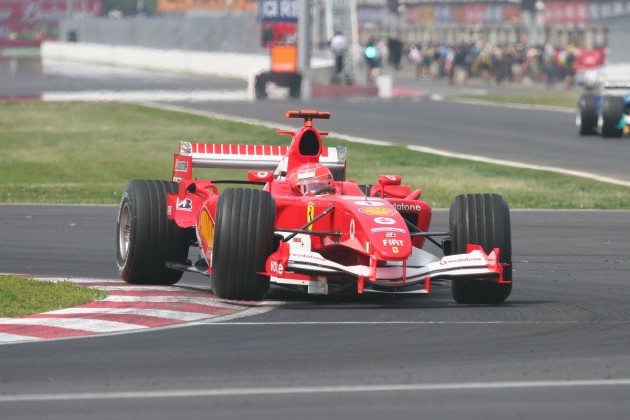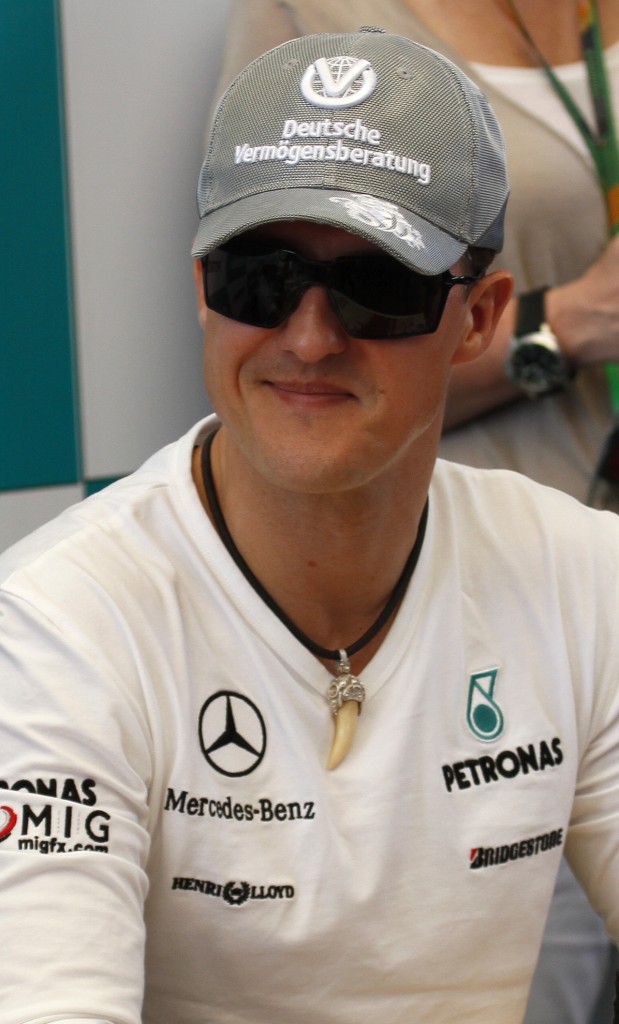Formula 1 Profile – Michael Schumacher
With a record seven World Championships and 91 wins, Michael Schumacher is by far the most successful Formula 1 driver of all time, perhaps even one of the greatest drivers in history, bar none. Though his dominant performances were sometimes punctuated by questionable ethics, not even his biggest rivals can claim he isn’t one of the all-time greats.
Schumacher came from relatively modest origins. His father was a bricklayer near Cologne, Germany, who ran the local kart track. At the age of four, Michael’s obvious enthusiasm for his pedal kart prompted his father to fit it with a small motorcycle engine. He crashed it almost immediately, but two years later had already mastered it enough to win his first kart championship. After that, the victories just kept piling on.
American Luxury: Learn why Lexus is now building cars in America
By the age of 18, Michael had both the German and European kart championships under his belt. Three years later, he won the German Formula 3 championship and was hired by Mercedes to drive sports cars. Through a stroke of luck, he was able to drive in the 1991 Belgian Grand Prix as a replacement driver for Jordan, where he finished an astonishing seventh.
That got him swiftly snatched up by Benetton, with whom he won his first F1 race in 1992. He also went on to win the 1994 World Championship, though his victory was marred by (unconfirmed) allegations that the Benetton didn’t adhere to regulations, as well as a collision with challenger Damon Hill, which many believe was intentional. Not letting the bad press let him down, he outright dominated the following year, and none could doubt he was truly a champion.
In 1996, Schumacher left Benetton to join Ferrari, laying the seeds for what would become one of the most prolific partnerships in F1 racing history. At the time, though, it was a risky move. He had just won two championships with Benetton and it had been five years since Ferrari had won a race and 13 since it had won a championship. Most champions would prefer to keep driving a dominant car.
But with him he brought Benetton’s technical director Ross Brawn and chief designer Rory Byrne, and together they began rebuilding Ferrari. It was a slow but promising start. Schumacher drove to three wins in 1996 and five more in 1997, but the latter season was dramatically put to an end when he unsuccessfully tried to ram rival Jacque Villeneuve off the track, causing the FIA to remove all his points.
Paper or Plastic? Watch Lexus choose paper every time
The crescendo was soon reaching its climax, however. Schumacher finished 2nd overall in 1998 and though a broken leg forced him to miss 6 races in 1999, he still finished 5th in the championship.
After that, there was no stopping him. He won Ferrari’s first championship in 21 years in 2000, dominated 2001 and 2002, won by a slim margin in 2003, and then dominated 2004 again. He set new record after record in just about every category there is, and might have been able to secure the 2006 title as well had his engine not blown up at the most inopportune time.

Photo: Mark McArdle
He retired rather suddenly from the sport at the end of the year, only to return in 2010 to drive for Ross Brawn’s Mercedes team. Most agree that he was past his prime at this point, and in a lesser car to boot, but he nonetheless showed everyone that he still knew how to drive and contributed to making Mercedes the dominant team that it is today. He retired for good in 2012.
Looking back at his career, it’s easy to say that Michael was blessed with supernatural talent or that he simply had a knack for finding the right car to race to championships. Some would also say that he only won because he “cheated” or crashed into others to prevent them from winning. To be sure, Schumacher wasn’t always ethical in his style of driving, but it was that ruthlessness that set him apart and allowed him to succeed where others couldn’t, and the rest of the time was sheer brilliance regardless.
But attributing his success to sheer talent, luck, or ruthlessness would be undermining his work ethic, which surpassed that of any driver on the grid. He worked harder on himself and with others than anyone else. He kept himself in a superior state of fitness that allowed him to drive the extremely demanding Formula 1 cars as though it was second nature, making it easier for him to focus on other details. His technical feedback was invariably useful toward making each Ferrari better than the last, and he was known for his relentless enthusiasm and optimism, often visiting the factory at Maranello to personally thank and encourage everyone involved in the Ferrari family.
Unfortunately, there is no happy ending to this Formula 1 profile. In one of life’s cruel jokes, Schumacher suffered a serious head injury a year following his final retirement while on a family skiing holiday. After spending several months in a coma, he is now under private rehabilitative care. Though he is allegedly recovering, he cannot move or speak and has memory problems. It seems an unfitting end for one of the world’s greatest drivers.

The News Wheel is a digital auto magazine providing readers with a fresh perspective on the latest car news. We’re located in the heart of America (Dayton, Ohio) and our goal is to deliver an entertaining and informative perspective on what’s trending in the automotive world. See more articles from The News Wheel.


